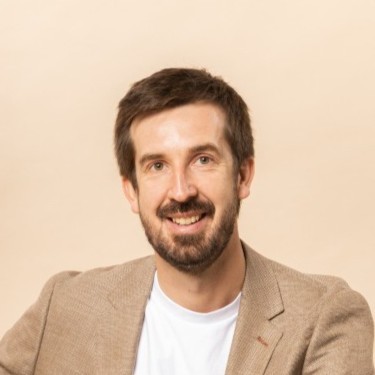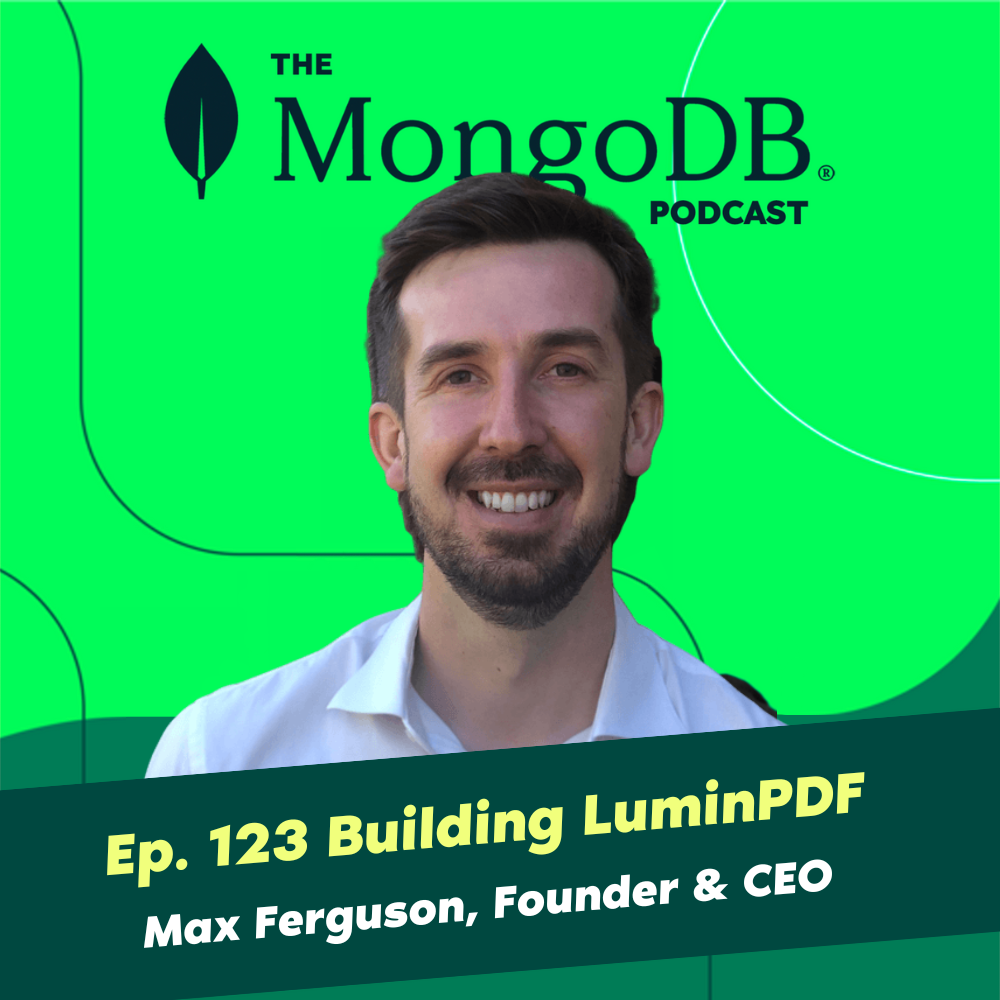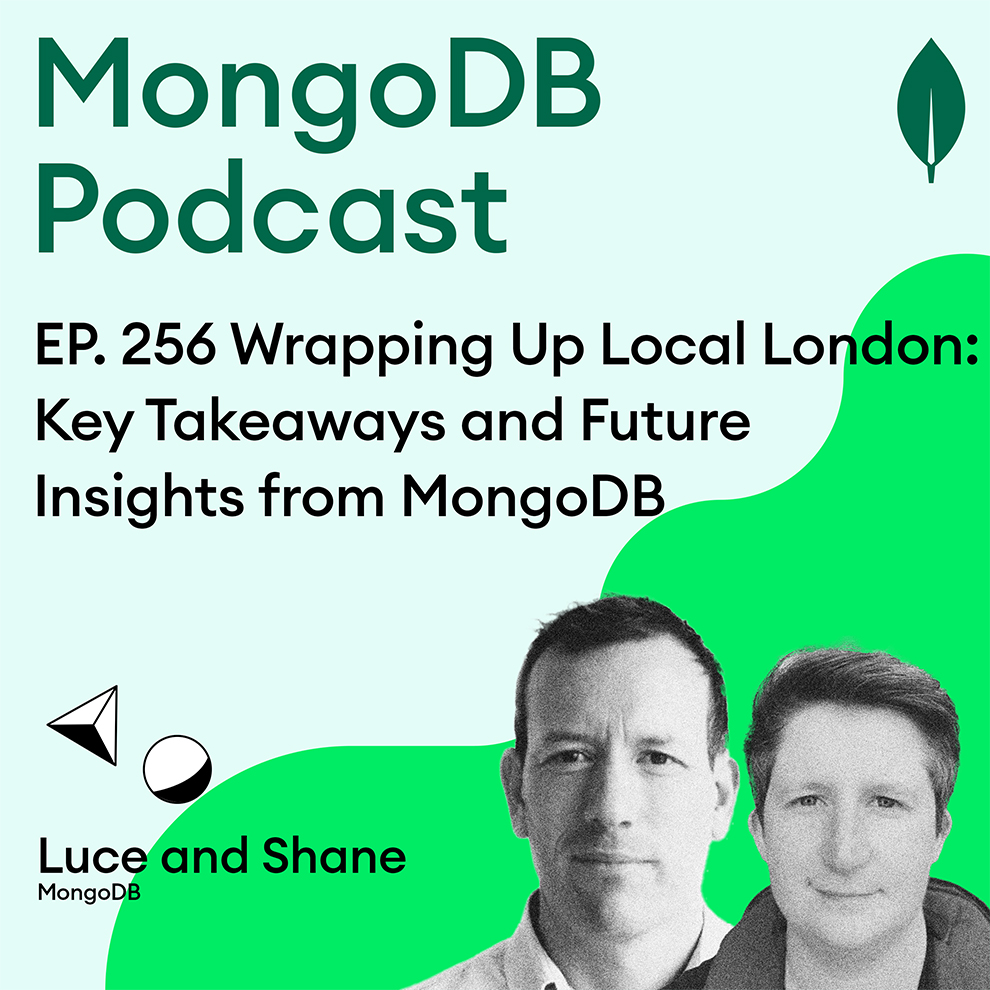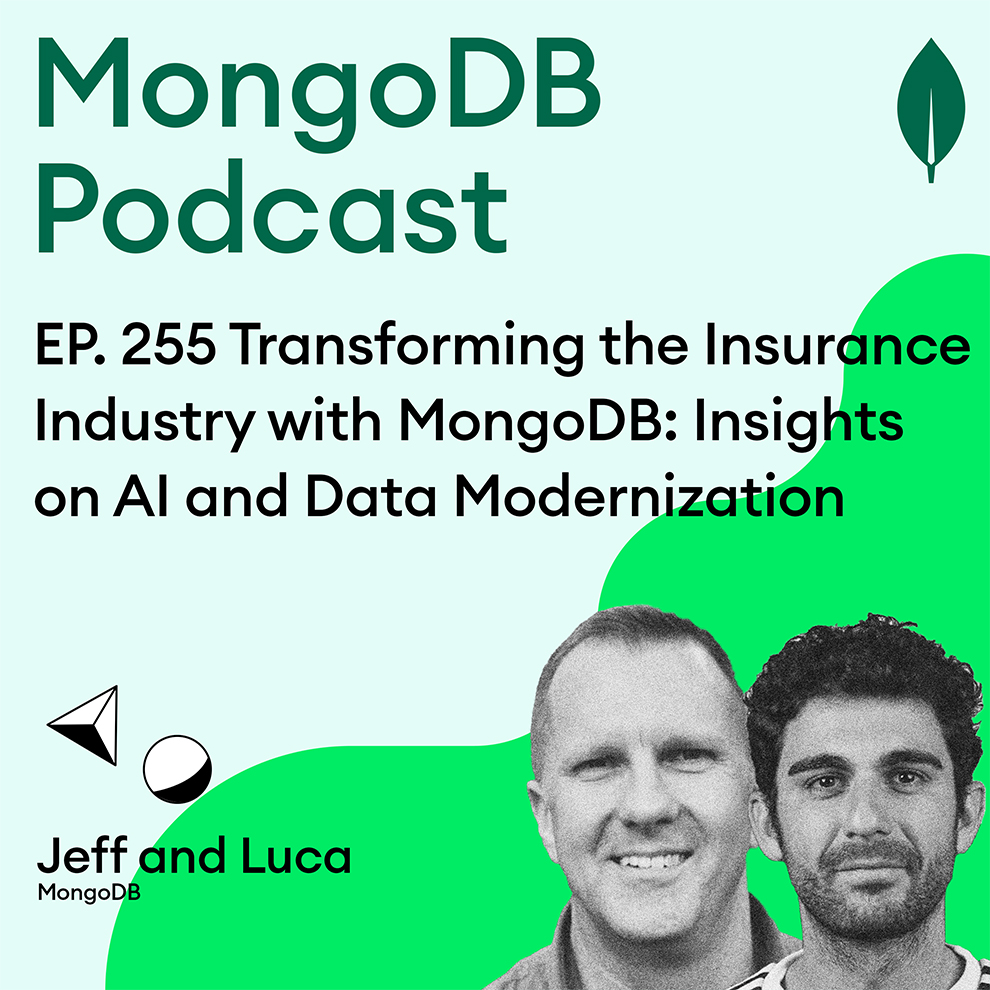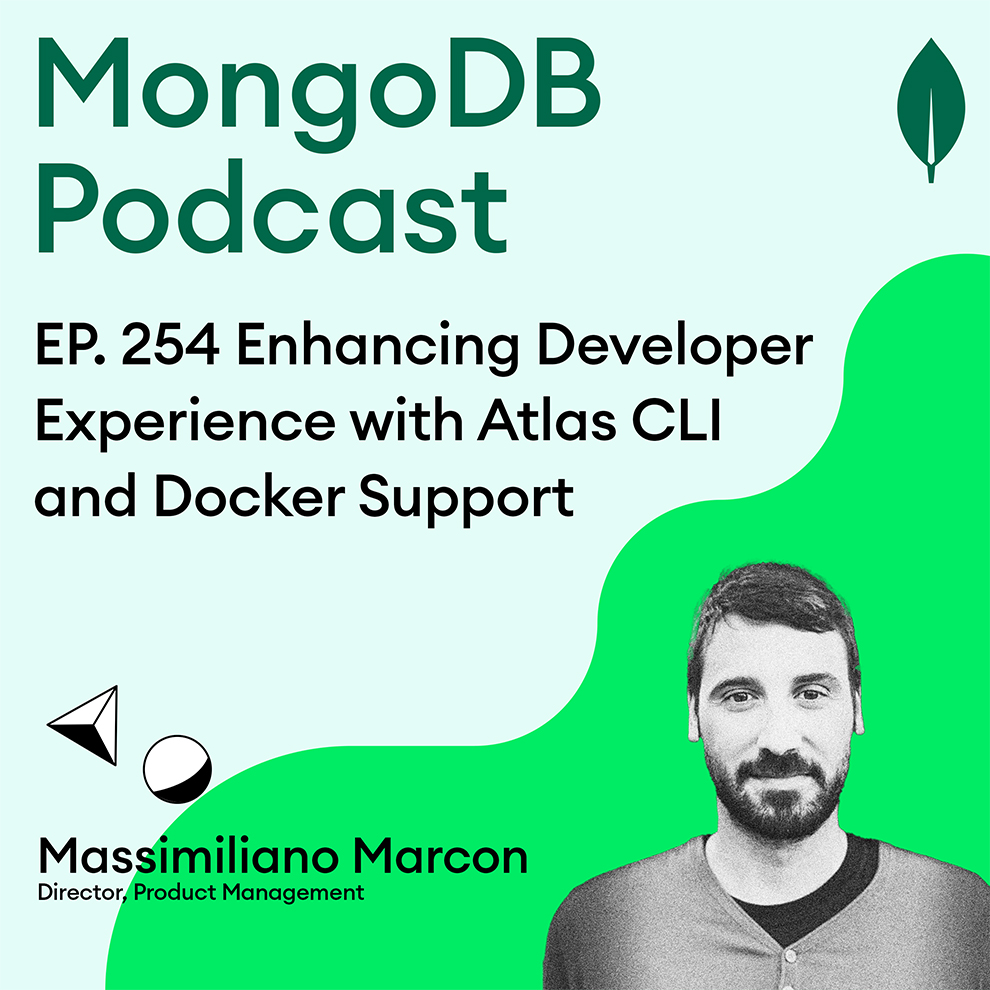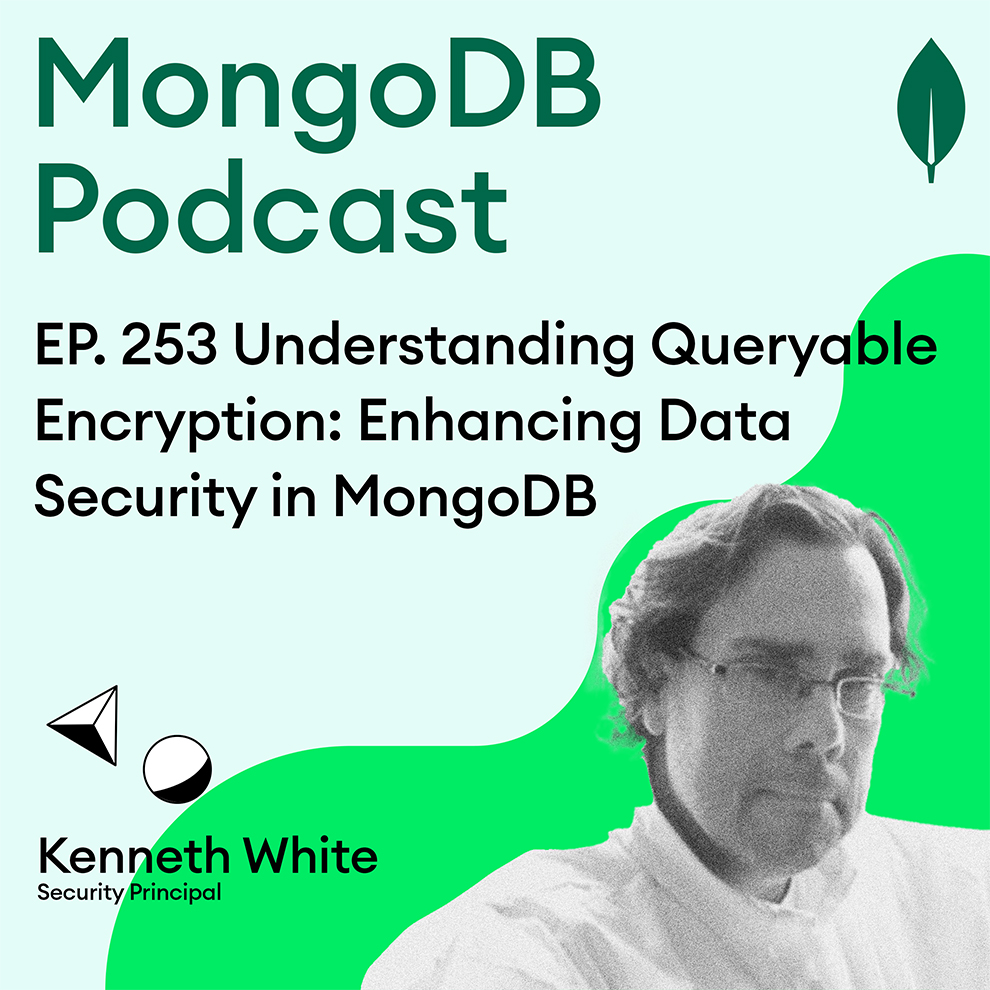Ep. 123 Building LuminPDF with Max Ferguson
- 0.5
- 1
- 1.25
- 1.5
- 1.75
- 2
Michael Lynn: Portable document format, PDFs. I'm sure you've received them via email. Perhaps you've had to sign them. Great thing about PDFs is you can create the document knowing that it's not going to be modified. You can share it, you can print it. The difficult thing about PDFs is that what if you've got to create them from scratch? How do you create them? How do you annotate them? How do you sign them? Max Ferguson, today's guest. He created a company based on solving this problem. Lumin PDF was born about seven years ago. It's grown phenomenally and he's built it all with MongoDB at the data layer. We're going to talk about that today. Stay tuned.
Max Ferguson: So Lumin PDF is an online platform that users can use to sign, upload, share, and edit PDF files. We have 70 million users using the platform as of 2022. And I wrote the original version of Lumin PDF seven years ago. And it's scaled quite drastically since. Hey, everyone, this is Max, CEO and founder of Lumin PDF. Welcome to the MongoDB podcast.
Michael Lynn: So today we're going to be talking about your company Lumin PDF. Well, introduce yourself and tell the folks about Lumin PDF.
Max Ferguson: Definitely. So Lumin PDF is an online platform that users can use to sign, upload, share, and edit PDF files. We have 70 million users using the platform as of 2022. And I wrote the original version of Lumin PDF seven years ago. And it's scaled quite drastically since.
Michael Lynn: 70 million. Congratulations, that's quite a number of users.
Max Ferguson: Yes, definitely. So we offer the product for free to a lot of education providers. So we have a lot of people in education using the platform. And then over the last two or three years, we've found a lot of businesses have found a lot of value in the platform as well. So in terms of the business segment, we've had tremendous growth.
Michael Lynn: And I would imagine you experienced a lot of growth during the pandemic, perhaps, when folks were communicating more online.
Max Ferguson: Yeah, definitely. We were in a fairly strong position prior to the pandemic. We had about 40 million people using the platform, because PDFs and documents are every day part of people's lives, whether you like it or not. We're using PDFs and we're working with PDFs every day. So a lot of people found value in the platform before the pandemic. Nut obviously, as the world digitized in the pandemic, we had a lot of new users come on and we had a lot of businesses see additional value in Lumin PDF. The thing that I think is really interesting there as well, is that following the pandemic we didn't see any drop in usage because now that a lot of businesses and schools have digitized their workflows, they're finding more efficient ways to work than they were before. And so Lumin PDF continues to grow.
Michael Lynn: So let's go back seven years and tell me about how you came up with the idea and how it came together. I guess first from a business perspective. Where were you in life seven years ago and had you started other companies?
Max Ferguson: Yeah, so I was just finishing up at the University of Canterbury, which is one of our big engineering universities here in New Zealand. And I was studying civil engineering and I graduated from the University of Canterbury and started working in construction. We had a large earthquake here in Christchurch in 2010. And so I was working on the repairs to the city after that following that earthquake. And I found working in construction and onsite, we were doing a lot of work on paper, so people would bring paper plans to site and we would mark them up and draw and make alterations. And then a lot of the work was also on the digital world, so on PDF files online. But there was a disconnect between the two. So anything that got written on the paper plans never made it to the digital form. And we ended up losing paper plans and getting behind on schedule and it was difficult. So I wrote the original Lumin PDF to solve that problem, which was sort of this disconnect between the physical world and just being able to write on a document and the digital world. And it took me about three weeks to write the initial version. It was very scrappy. It was using Mongo DB from the start. So it was actually a Python in MongoDB convert, which is sort of unusual, but we grew. I put the product out there early and the usage grew relatively quickly. I think we had a few million users within the first six months or so. So the product got early traction and we started sort of growing from that point on and just improving the product, investing everything we made back into product development.
Michael Lynn: Now does Lumin PDF offer scanning? How do you go from the physical world to the digital world with Lumin PDF?
Max Ferguson: Yeah, definitely. So we find there's some really great phone apps out there for scanning. So what users generally do is they use something like a cam scanner and scan it in to Lumin, on their phone, and then they can mark up and so we allow the users to sort of draw and sign, annotate, and do anything like that on the document once it's in the digital form.
Michael Lynn: Okay. And how are you storing the documents with MongoDB? Are you storing a blob? Is it a binary? Are you storing that in MongoDB as well? Or is that stored in some S3 or an object store?
Max Ferguson: Yeah, definitely. So the documents themselves are encrypted and stored in S3, but all of the annotations, so either pen annotations or text annotations, will get stored as individual MongoDB documents. And that allows us to let the users undo and redo all of their actions, that allows us to give the users sort of an audit log if you like, of everything that's happened on that document.
Michael Lynn: Yeah. So I'm thinking about how I would solve this problem, having the binary image, having the blob, and then having a user interact with that, you're storing clicks and drags across the document itself. I would imagine you're offering a tool palette where folks can highlight and circle. Is that correct?
Max Ferguson: Yeah, that's correct. So those customers, they can highlight, they can circle, they can sign anything like that. And when they do those actions, we store that metadata in the database. And we actually also, so when the user then or the customer decides to download that document, then we combine those into a PDF and export that as a single blob.
Michael Lynn: Okay, great. So storing the metadata separately from the blob. Gotcha. And so 70 million users, what does that translate into in terms of actions? I mean, what does your MongoDB infrastructure look like today?
Max Ferguson: So we're using Mongo Cloud to host our MongoDB, which is fantastic. We actually originally started with a self- hosted three node Mongo cluster, running on some pretty hefty Amazon instances, but we found that maintaining that was challenging. And so we actually moved to Mongo Cloud. And from there, we've just scaled using Mongo Cloud. I don't even have a really great understanding of the size of that since we're using on Mongo Cloud, but that's the beauty of it, right? We don't need to worry too much about whether we've scaled correctly or not. We know we have more than a terabyte or so of annotation data, but we don't need to know the finer details of how Mongo's actually taking care of that for us.
Michael Lynn: Yeah. That's a beautiful thing. And enabling you to concentrate on running the business and doing the important things important to Lumin PDF and your customers. And so I wanted to ask about Lumin PDF as a company. You hadn't run a company before. Did you find that challenging transitioning from actually working and writing the code to actually building a company?
Max Ferguson: Yeah, it's definitely a huge challenge. I actually decided the same time, near the same time as founding the company, to take on a PhD at Stanford. And so I spent seven years doing a PhD at Stanford while I was running the company at the same time, which kind of added to the challenge. But I think what I learned fairly early on was to put really, really good people in charge and give them responsibility. So we have fantastic technical leads. We have fantastic people in charge of our operations and our marketing. And we put a lot of effort into recruiting those people and training them. But then, since then, we've sort of given them the flexibility to grow and make their own decisions, because I don't have a background in marketing or in operations so I've had to sort of find the people that can do that and give them the flexibility they need.
Michael Lynn: Fantastic. I mean, it sounds like a great growth company. I wanted to ask you about advice you might have for other founders, early stage. They've got a great idea. They're getting things launched. What advice would you give those folks?
Max Ferguson: So a few pieces of advice there. I think one of them is just to keep trying and keep working, keep persevering. Before I wrote Lumin PDF, I actually built around eight other applications, some of which exist today, none of which were as successful. And each one of those sort of gave me the knowledge and the foundation to build the next. So I think persevering, and trying over and over again, until you get something that's working really well is key. And it won't be successful the first time around. The other main piece of advice there I would give is to release early. When you've built a product or you have a prototype, get that in front of people as early as possible. Because a lot of the time you may have gone in the wrong direction and you need someone in the industry to tell you, " Look, what you're doing here is not quite in the right direction, but if you did this here is slightly beside it, you could have a lot of success." And alternatively, you might be hitting success straight away, but you're not really going to know unless you put that product out there. So I think it's absolutely essential for these people that are just getting started to put their product out early and see what the market thinks of it.
Michael Lynn: Hmm. Embracing failure.
Max Ferguson: Definitely. Yeah. I think that's very important and understand that the journey is going to have probably more failures than successes. And so getting used to that early, I think's very, very important. Just getting used to the fact that quite often, you'll try things, especially as sort of a technical developer, you'll try things that won't work. And in the engineering world, we spend a lot of time planning. We spend a lot of time making sure that what we work on will succeed. But really in the business world, we can't be as certain of some of the products we release because there's just so much more uncertainty in how the market will respond. So I think getting used to that uncertainty is a really big step for a lot of people with a technical background.
Michael Lynn: Now, over the course of the last seven years, I would imagine you would've had to back away from the keyboard a bit. Do you still get involved in coding?
Max Ferguson: Yeah, I do, but not too much on Lumin production. I studied at Stanford. I did a double degree in civil engineering and artificial intelligence. So I have a good knowledge of sort of AI systems and computer science. So I find it quite fascinating to be involved in that part of the business, where we're doing things like annotation completion, but I don't get to write as much code as I would like to. Mostly just small pieces on any R and D work we're doing.
Michael Lynn: I'm curious about the evolution of the product itself. Now you mentioned Python, probably PyMongo, and then obviously MongoDB on the back end. Has that changed much?
Max Ferguson: Yeah. So what has changed, we're still using MongoDB to drive the majority of the application. What has changed is that we now have a lot of different services and applications out there, and we found that the Python system wouldn't scale for us. So we moved over to what you would call probably a more standard set up these days, which is no JS on the back end, react on the front end, and MongoDB sort of behind that with Mongooose. And then in parallel we have various other systems that are using other technologies. We use Plug Cast for analytics, which is another analytics database, and we use some SQL for our R and D work, but we are not using SQL in production.
Michael Lynn: So, great. Maintaining MongoDB on the back end. That sounds good. And still leveraging Mongo to be in the cloud. And I'm a huge fan of Mongoose. Are there other products in the MongoDB portfolio that you're using?
Max Ferguson: Yeah. So the big one that we're looking at using at the moment is MongoDB's cloud search product. And what we're trying to do there is we found that a lot of our users have huge document collections with thousands or millions of documents, and they want to be able to search over the text in those documents. Just to give you an example of where this may be used, we have city councils or district councils, which often keep records of land transfers and title transfers. And they want be able to search over and find a specific document out of a large collection. So we want to enable them to do that easily and quickly. And that's where we're evaluating Mongo's search capabilities to enable that. It's a fairly challenging task in that there will be more text starter in most documents than across sort of all of the annotations and everything we're storing right now. So it will be pretty large scale up on that engineering side. But we think that Mongo's offering will allow us to do that in a way that's sort of low risk and high performance.
Michael Lynn: And is that Atlas Search that you're talking about?
Max Ferguson: Correct. Yeah, that's Atlas Search.
Michael Lynn: Yeah. Great. Just had Marcus Egan on the podcast and he explained how that all comes together. Really just fantastic way to offer those absolutely essential search capabilities for your application without having to go and set up a completely separate elastic search infrastructure. So, yeah, looking forward to that. And what else is on the pipeline? What's in the roadmap for the company.
Max Ferguson: So we have actually another couple large product releases coming up. The biggest one is Bananasign. It's currently available as a free beater right now. And the Bananasign product is a alternative, if you like, to a product like DocuSign, but offered at a lower cost point because we've found that a lot of our home users and small business users find DocuSign to be overwhelming in terms of pricing and offers a lot of features that the user doesn't necessarily need. So we have the Bananasign product coming out soon. We're also offering an API for the Bananasign product, which allows any developers to integrate. So if they want to add document signing capability to their application, they can just integrate with Bananasign and we'll take care of all of the digital signatures, encryption, audit logs, and all of that, and just return the signed PDF to them. So I think that should be a really, really great tool for the developer tool belt, having just the API for document signing.
Michael Lynn: Yeah. And what a great suite of tools. I mean, it sounds like it matches perfectly with the set of features and the value added by Lumin PDF. Will these be offered in conjunction?
Max Ferguson: Correct. Yeah. So we have an integration between the two. What we find is a lot of people use Lumin PDF for the earlier stages of the document life cycle. So they might be reviewing a contract, making some minor changes, sending it out and sharing it for feedback. And then once that contract is ready to go, we envision that people use our integration to take it over to Bananasign and then send that out to be signed.
Michael Lynn: Terrific. Well, Max, I want to thank you for joining me today and sharing details of Lumin PDF and Bananasign. Is there anything else you'd like to share with the audience before we wrap up?
Max Ferguson: I think I would just like to share the fact that we've had a great developer experience with Mongo. I think the price point we've paid is really, really attractive. And for anyone starting out there, Mongo will be a great product for them to use, especially the Atlas Cloud. So give Mongo a go, and while you're at it, have a look at Lumin, have a look at the new Lumin API coming out, and take a look at the Bananasign API as well.
Michael Lynn: Fantastic. And where can folks get more detail about Lumin?
Max Ferguson: So I think if you just Google Lumin PDF, we should be right there. And same for Bananasign. Google Bananasign or Bananasign API, and you'll find out our website at bananasign. com.
Michael Lynn: Fantastic. We'll include links in the show notes. So make sure you check those out. Max, thanks so much. It's been a great conversation.
Max Ferguson: Thank you so much. Have a great day.
Michael Lynn: Thanks so much to Max for joining us today, talking about Lumin. Lumin PDF. You can get more information at luminpdf. com. Get stuff done. Edit PDFs in the cloud. Lumin brings your documents to life with a suite of digital tools that let you annotate, collaborate, and share PDF documents in the cloud. It's built on MongoDB, folks. Check the show notes for additional links and resources. Would love to ask for a comment and a rating. If you're listening on Apple Podcast, hop on over and leave us a comment and a rating. It'll help me improve the show and expand our reach. Thanks everybody. Have a great day.
DESCRIPTION
On this episode, we chat with Max Ferguson, Founder & CEO of LuminPDF, to learn more about building LuminPDF as a student and his lessons about growth and startup experiences, as well as how LuminPDF uses MongoDB Atlas.
LuminPDF and MongoDB Blog Posts
Today's Host
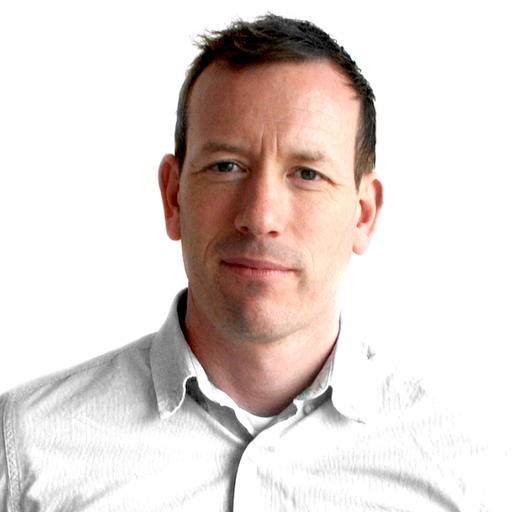
Shane McAllister
Today's Guests
